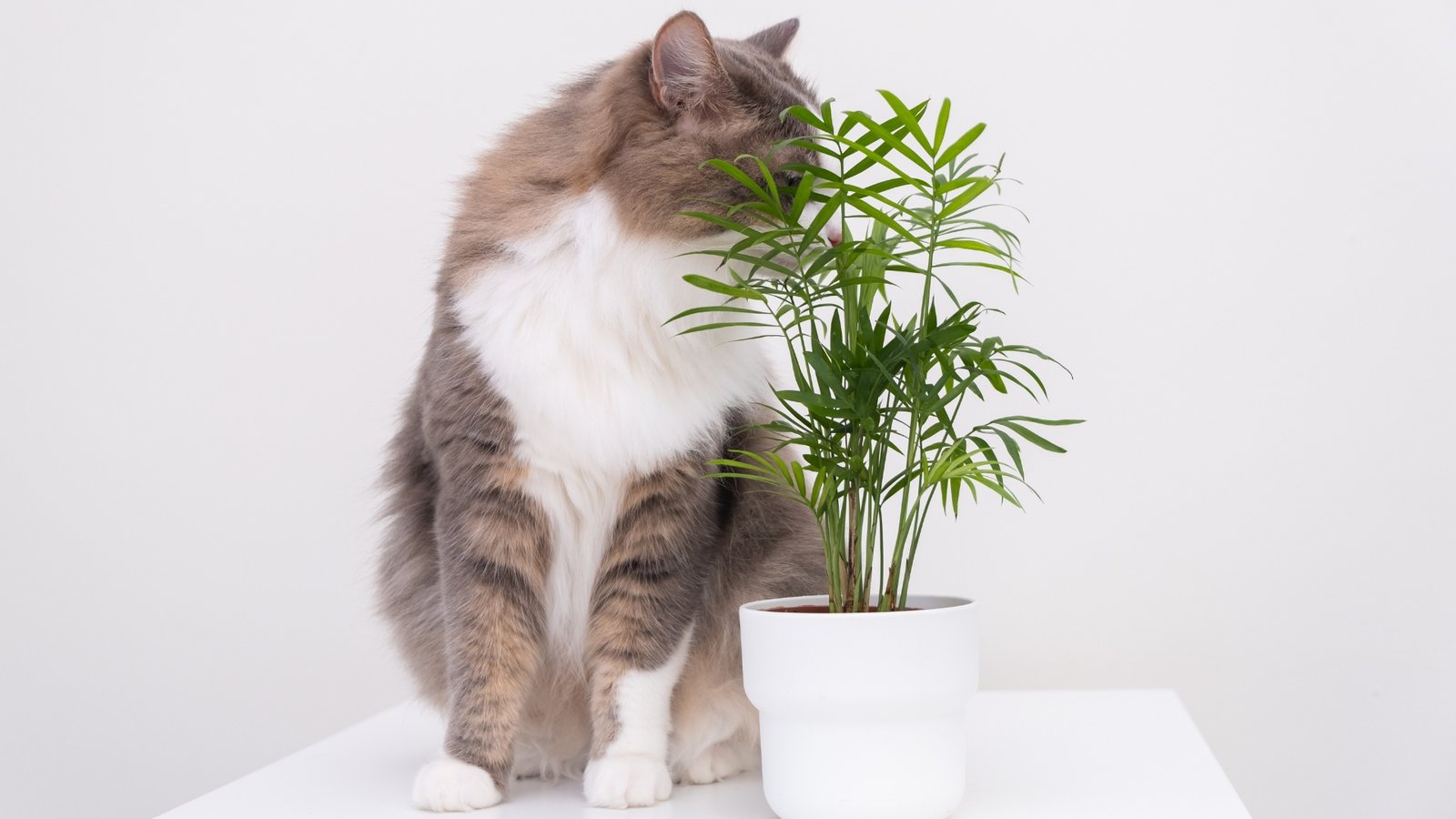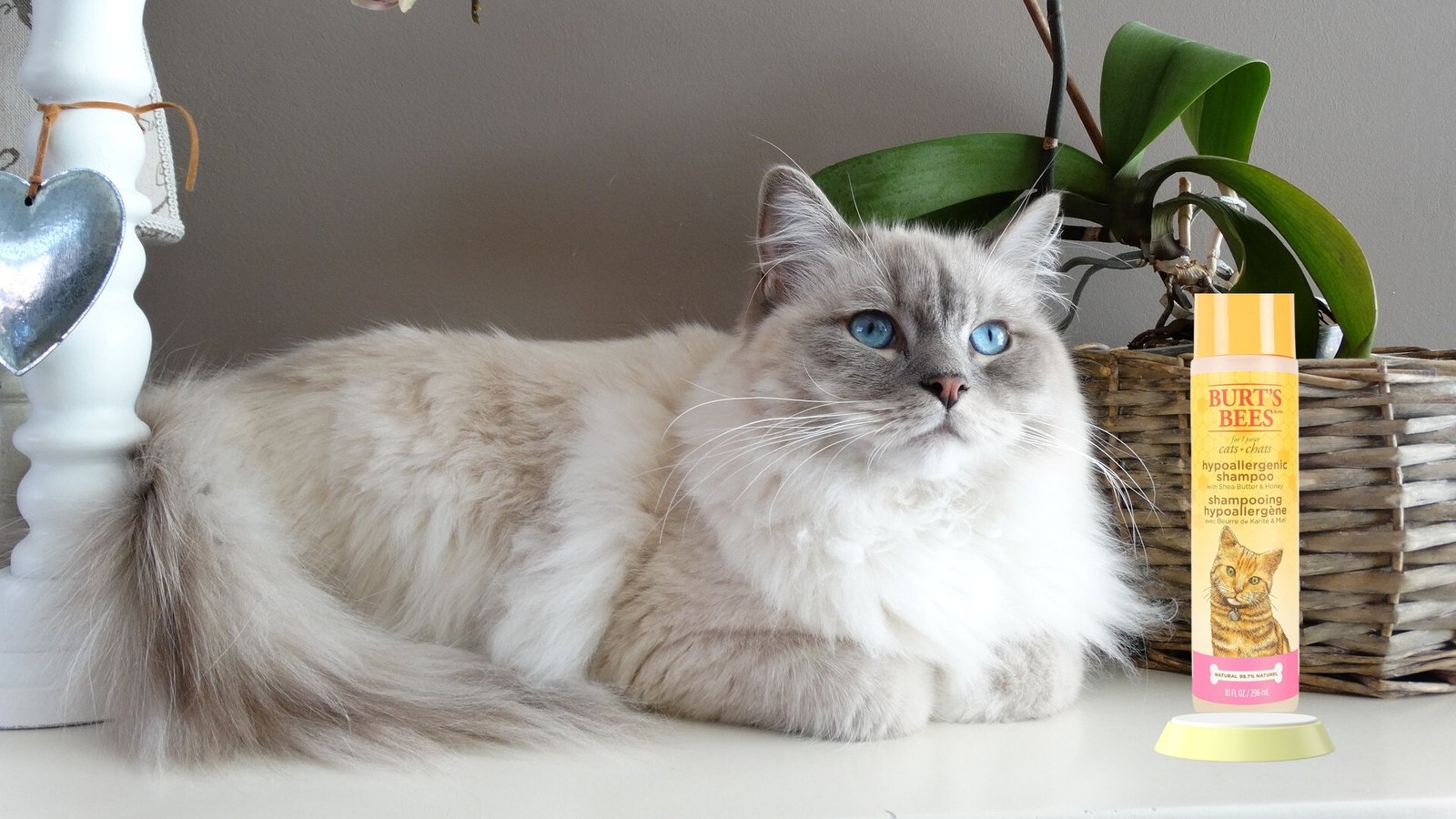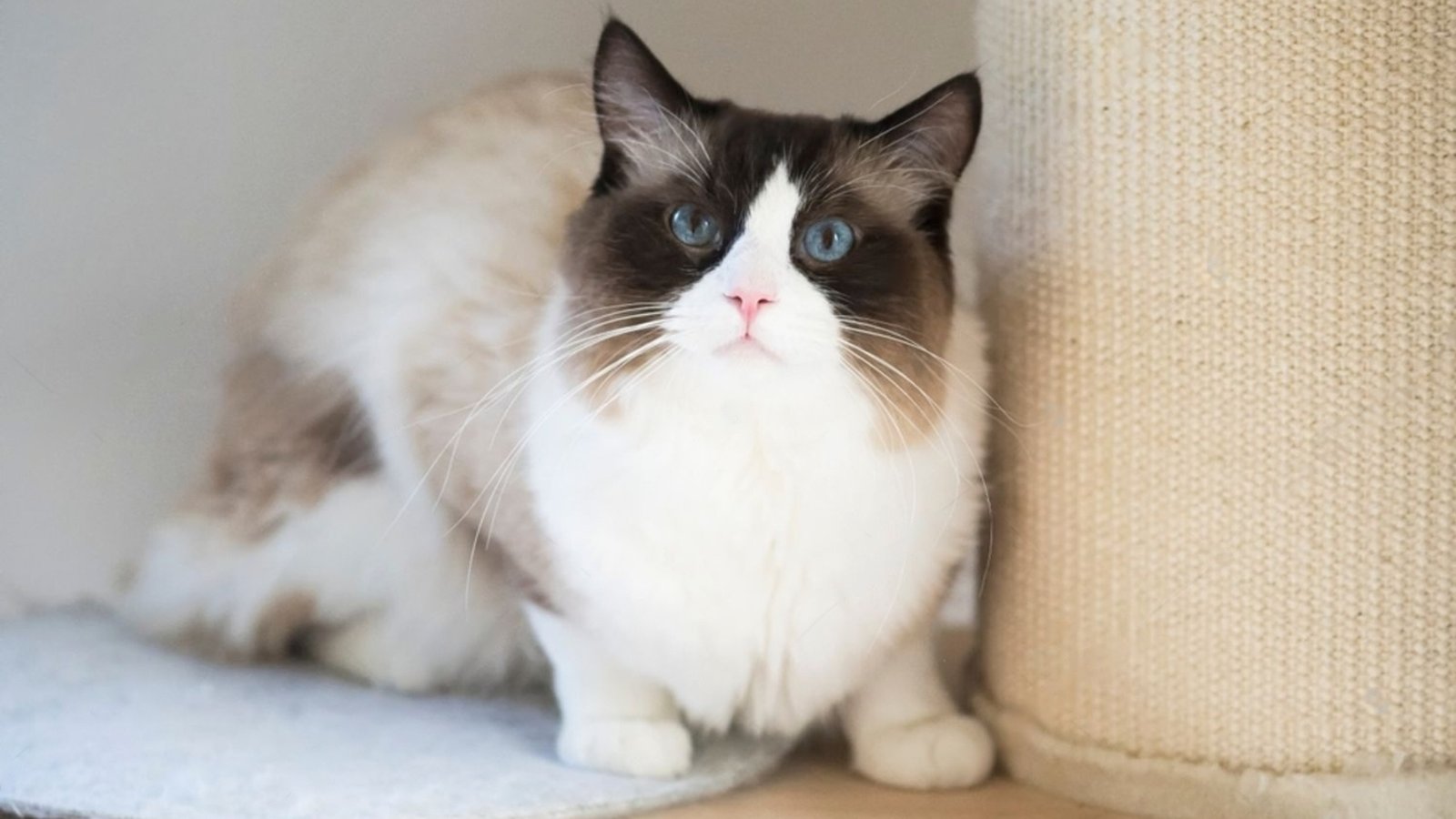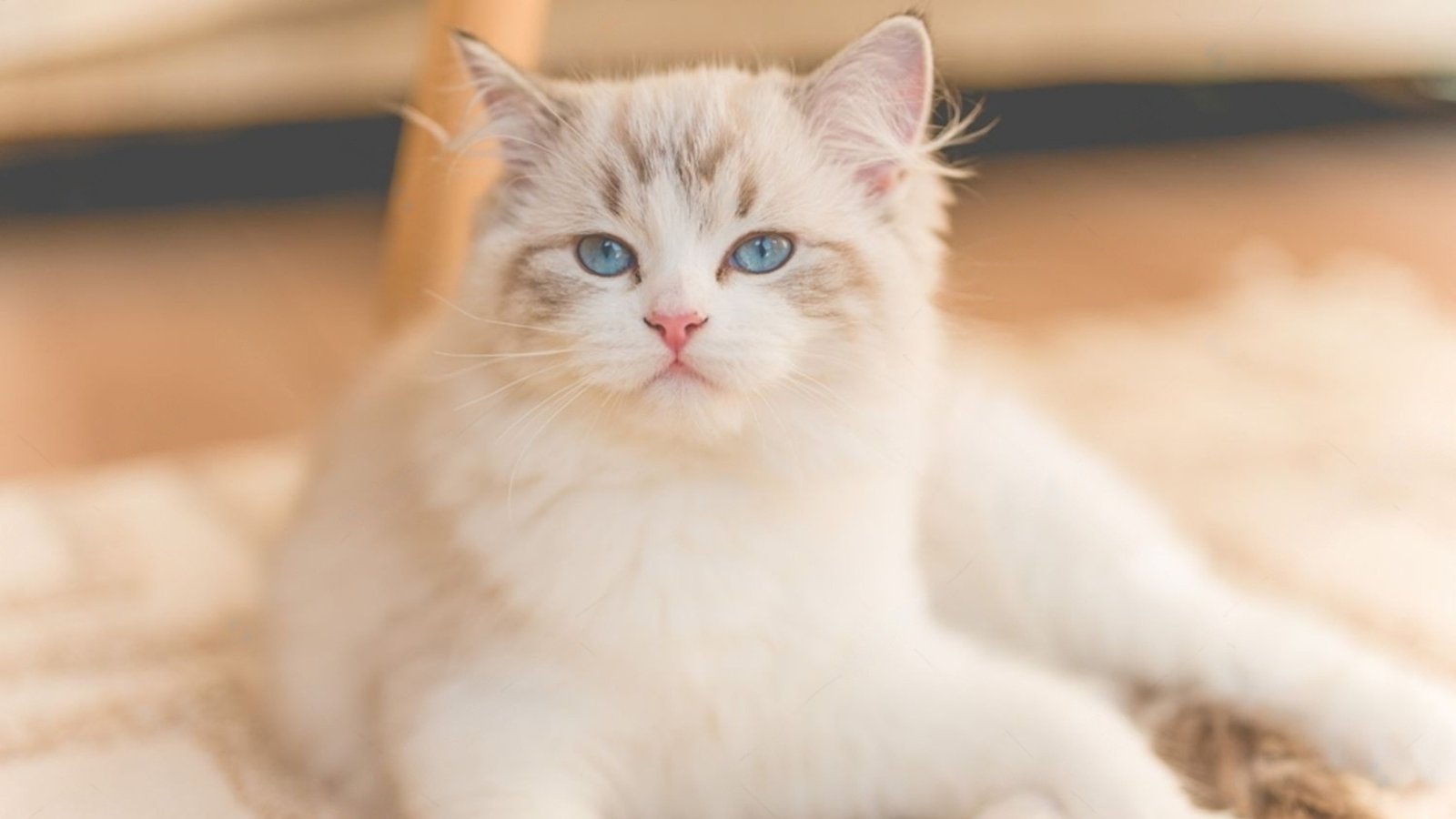House plants bring a touch of aesthetics, ease anxiety, and purify the air, but they don’t work out when it comes to ragdoll safety. These cats often stay calm and docile yet they do tend to chew on things while they’re growing up.
Poisonous plants like lilies and sago palms can be really dangerous (all parts of the plant are purely toxic). Ingesting even a tiny nibble can have devastating consequences which could seriously lead to lethargy, vomiting, and excessive drooling.
Turns out, you need to get yourself aware of which plants can potentially harm your ragdoll cats. This post features a list of house plants that are poisonous to ragdoll cats, so if there’s any in your home, get it off or keep it out of your ragdoll reach immediately.
Related Read: Ragdoll cat care guide for first time owners
Signs of Toxic Plant Poisoning In Ragdoll Cats
The toxic intensity of indoor house plants generally varies, and so do the symptoms of poisoning. If you see any of the written below signs, chances are they’ve gotten into one of those tempting low-growing plants. In a case like that, your best bet is to get them to the vet as soon as possible.
- Lethargy & Weakness
- Vomiting & Bloody diarrhea
- Excessive drooling
- Loss of appetite
- Difficulty in breathing
- Skin irritation
10 Toxic Houseplants For Ragdoll Cats & Their Alternatives

Lilies

All types of true Lilies (genus Lilium) and daylilies (genus Hemerocallis) are extremely lethal to ragdoll cats. Since ragdolls love to play and chase their owner all over the house, it could be very possible for them to ingest a petal, lick the pollen off their fur, or get ahold of the stem or leaves. The risk is just too high, as the tiny consumption of lilies plant could lead to kidney failure within just 3 days. The best you can do is to be vigilant and simply not have lilies both indoors and outdoors if you have a ragdoll cat.
Safe Alternative To Lilies: Cast Iron Plants

According to the ASPCA, cast iron plants are nontoxic alternative to lilies for your ragdoll cat’s safety. Despite being a member of the lily family, these hardy houseplants are entirely risk-free for cats, dogs, and horses. With their dark green, pointed leaves that can grow up to 2 feet high, cast iron plants are very much popular, and we think a great replacement for the deadly lilies.
Aloe Vera

Although, aloe vera plants are easy to care for, add a minimalist aesthetic vibe, and have umpteen benefits (aid in sunburns, heal wounds, and breakouts), they are unsafe for ragdoll cats. Both the leaves and pulp are toxic if ingested, leading to severe dehydration afterward because of excessive vomiting, and diarrhea. Keep an eye out for any aloe vera-related materials that may have made their way into your home.
Safe Alternative to Aloe Vera: Haworthia

For a safer option, that mimics aloe’s look, Haworthia is your way to go. These plants have similar thick, fleshy leaves but are non-toxic to cats. They’re easy to care for and generally free of most insect pests.
Sago Palm

Sago palms might catch your eye with their shiny stiff fronds. They are pretty easy to grow inside or out and totally give off a tropical feel. In parallel, sago palms are a real poisonous for your ragdoll kitty. All parts of this houseplant are purely lethal, with the seeds being considered especially dangerous. If you’ve got a sago palm hanging around and you’re a ragdoll owner, do yourself a favor and get rid of it pronto.
Safe alternative to sago palm: Cat Palm

As a safe houseplant for cats, cat palms do offer a similar lush green appearance. They do well in low-light conditions and you won’t have to miss out on the tropical vibes in your home.
Snake Plant

As adorable as they appear, snake plants ( Dracaena trifasciata) aren’t very “pet-friendly” plants. It’s listed as poisonous indoor houseplants to cats and dogs by the ASPCA. Snake plants contain saponins kind of material which if your ragdoll absent-mindedly nibbled on, could lead to nasty complications.
Safe Alternative to Snake Plant: Orchids

Orchids are among the largest families of flowering plants out there, with over 25,000 species, and not a single one is seriously toxic to cats. They’re included in the non-toxic plant list, and it pays off to have them in your home. By and large, orchids are a fair replacement for snake plants, our advice is to still cat-proof your plant to avoid any sort of ingestion.
English Ivy
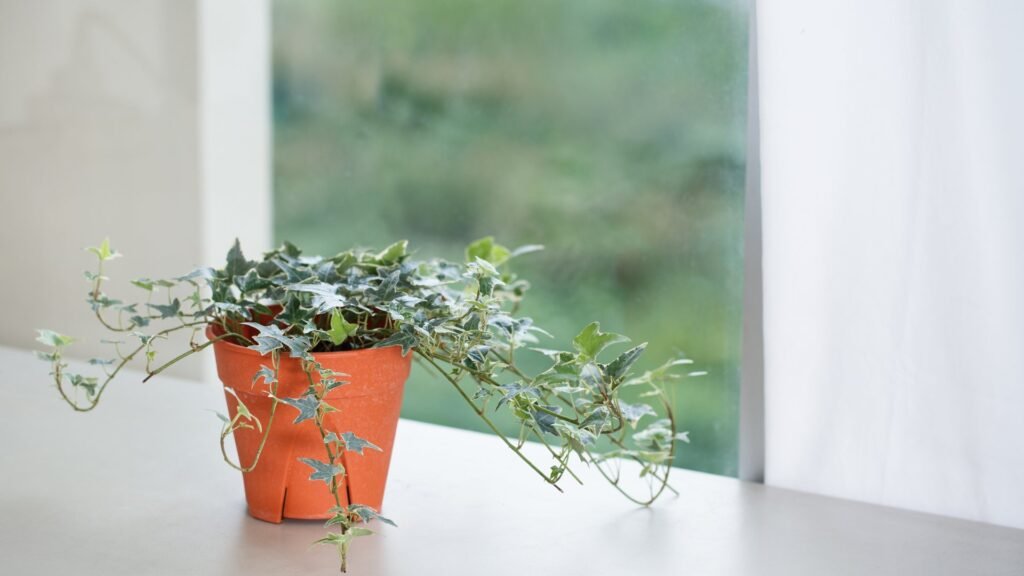
English ivy (Hedera helix) is heavily common, you’ll see growing it in landscapes all over the United States. From home decor, and balconies, to garden settings, it’s a gorgeous house plant in general. Since it’s so popular, most people think, it’d be safe to have them around the home, but it turns out that’s a totally faulty statement. English Ivy contains polyacetylene and saponins easily wreak havoc on your cat’s digestive system. If your ragdoll cat gets into it, you might be dealing with vomiting and excessive salivation.
Safe alternative to English Ivy: Spider Plant

Spider plant (also named spider Ivy) has solid green leaves, sometimes with white or yellow stripes. They look pretty cool inside the house and normally grow in dense bundles. The most fabulous part, they don’t pose any danger to ragdolls. Spider plants are easy to care for and can give you that lush, green look without putting your bright blue-eyed furry companion at risk.
Jade Plant

Jade plants, or Crassula ovata, are often associated with friendship and good fortune. They grow upright with small white or pink star-like flowers. Equally important, if your ragdoll cat munches on any part of a jade plant, it could be trouble. You might notice symptoms like clumsiness, weakness, tiredness, and even vomiting.
Safe Alternative to Jade Plant: Peperomia

Peperomia plants belong to the Piperaceae family and are absolutely safe around cats. They’re tropical houseplants with interesting leaf textures and foliage patterns. Some even go by the name “baby rubber plant.” They don’t contain toxic substances that’ll harm your ragdoll cat by any means, so you can keep that green thumb going without the worry.
Pothos

Pothos plants might give you a feeling of serenity, but unfortunately, they won’t coexist peacefully with your ragdoll. It’s hard to resist their decor appeal – that greenery really can brighten up a space. With waxy, heart-shaped leaves so shiny they almost look fake, pothos is a go-to for many houseplant lovers. They hold back calcium oxalate crystals. If your cat makes contact, it could lead to oral irritation, difficulty swallowing, and excessive drooling. Not fun for anyone involved.
Safe alternative to Pothos: Boston Fern

Boston Fern has arching branches and leaves that can grow 60-90cm and might look just as tempting to your cat, but the good news is they won’t harm your ragdoll kitten. All varieties of Boston ferns are completely non-toxic. Plus, they’re pretty low-maintenance, which is we think always a bonus when you’re juggling pet care and plant care.
Eucalyptus

Eucalyptus plants are fairly prevailing with a lovely menthol-like scent that’ll spread all over your home. They’re toxic to ragdoll cats, though, because they suppress eucalyptol. The oil on the leaves is the main culprit. If your ragdoll is even unconsciously in contact with it, and in the worst case, nibbled on the leaves or flowers, it’ll likely go down with a tummy ache.
Safe Alternative to Eucalyptus: Money Plant

Rumor has it, they’re supposed to bring you wealth and good fortune. Well, these plants have got dense, leathery, evergreen leaves that look pretty similar to eucalyptus, but without the poisonous risks for ragdoll cats.
Lily of the Valley

Lily of the Valley may look different from true lilies, but when it comes to toxicity for ragdoll kittens, they both do the same job. It contains cardenolides, that is cardiotoxic and eventually could lead to irregular heartbeats. They’re one of the most poisonous houseplants for ragdoll cats out there.
Safe alternative to Lily of the Valley: Spiderwort

Spiderwort got strappy leaves and is mainly considered a wildflower. Plus, It’s not poisonous to ragdoll kittens. You can use it to brighten up a corner space without worrying about your cat’s well-being. It might not have the same sweet scent as Lily of the Valley, but we’d say, it’s a fair trade-off for your ragdoll’s safety.
Dieffenbachia
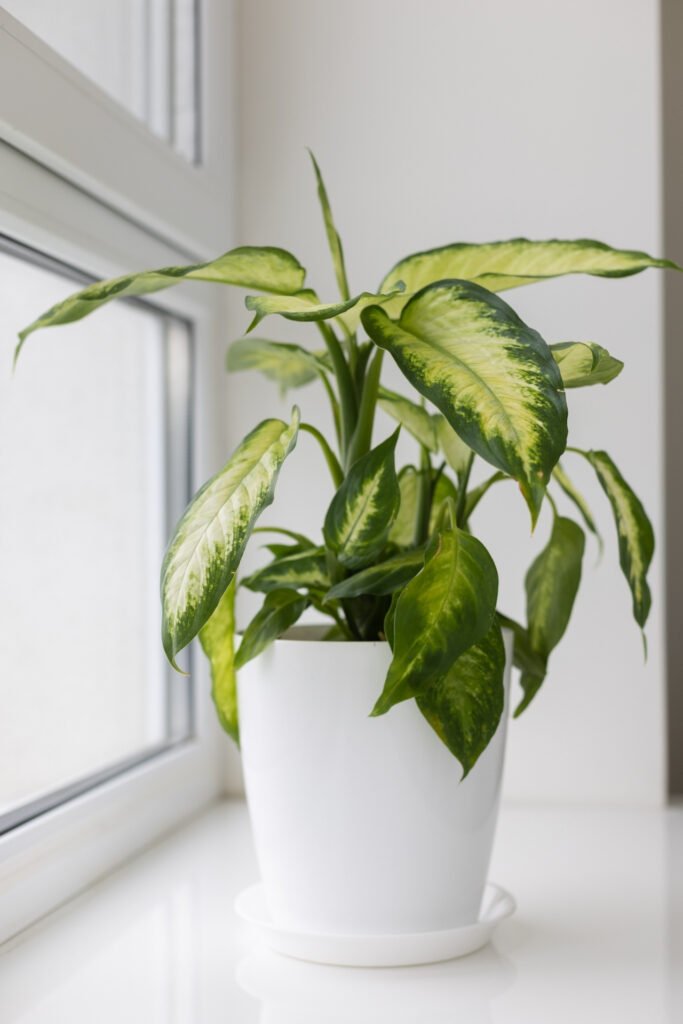
Dieffenbachia, like pothos, is another plant that glances well but spells worry for cats. It contains calcium oxalate crystals that easily penetrate the soft tissues in your cat’s mouth, throat, and gastrointestinal tract. After ingestion, it brings acute pain along with swelling that deters the cats from eating or drinking.
Safe Alternative to Dieffenbachia: Staghorn Fern

All varieties of Staghorn Fern are barely toxic and a safe alternative houseplant for homes with ragdoll cats. The absence of toxic compounds gives you the green light to have these around your ragdoll cats. Staghorn ferns have a special, antler-like look that honestly, adds up fascinating texture to your home decor. Besides, It doesn’t even produce offsets or shoots though.
Conclusion – The Bottom Line!
All the houseplants (both toxic & non-toxic) mentioned and reviewed above are ASPCA (American Society for the Prevention of Cruelty to Animals) approved. In case, your ragdoll kitty does accidentally ingest any of these plants, even if they belong to the safe category, it’s fine to see a vet, cause large ingestion of safe plants even lead to stomach upset. Besides, what else you could do is train your ragdoll kitty from the start to stay away from plants or simply place them in an inaccessible spot.
Written By: Usman Malik | Reviewed By: Ali Abbas | Fact Checked By: Aqib Zulfiqar



